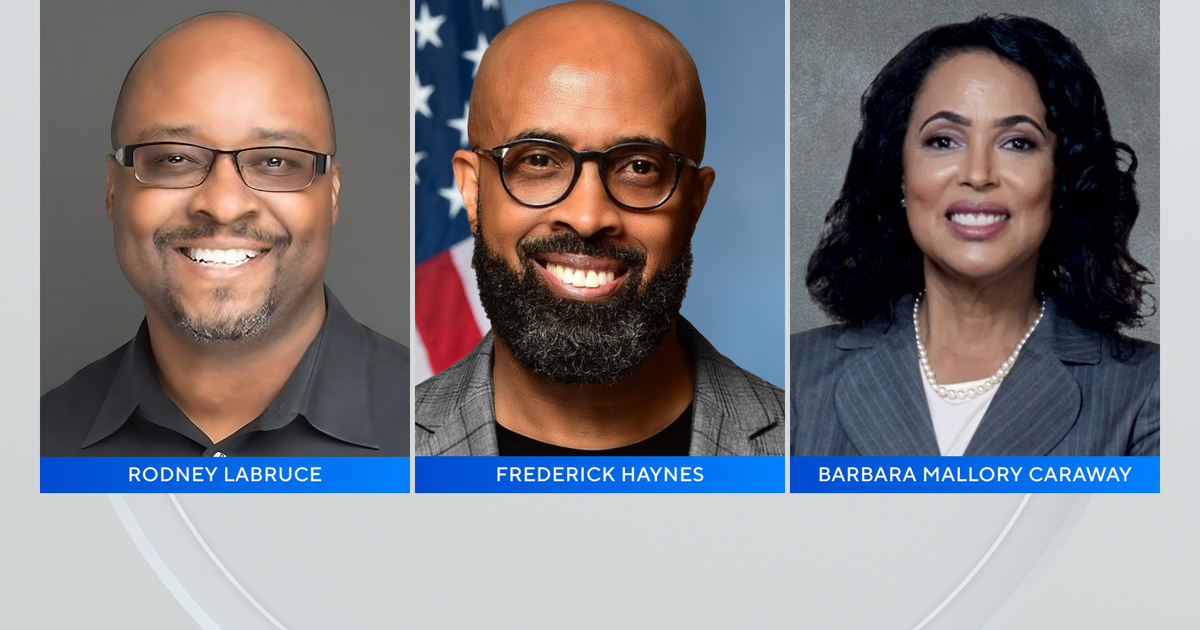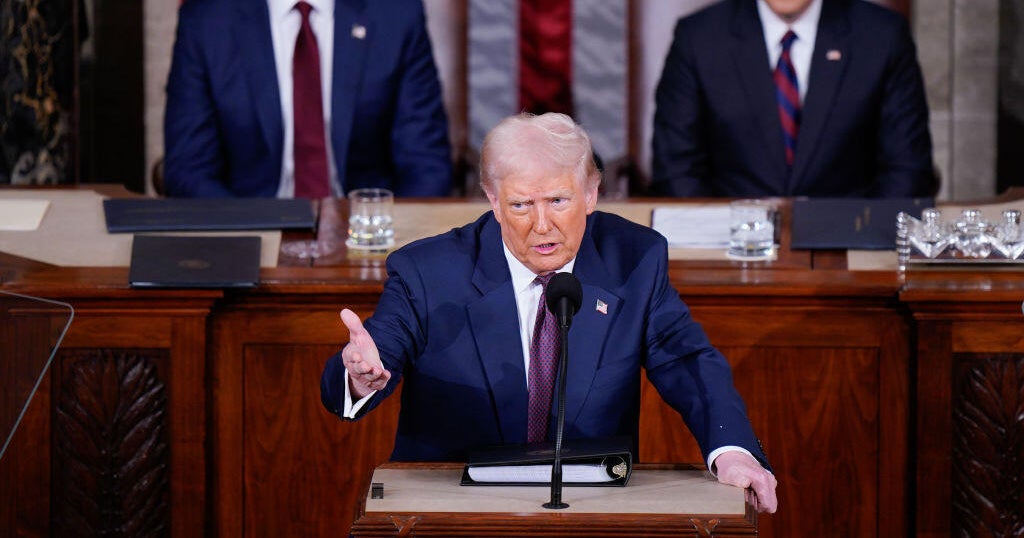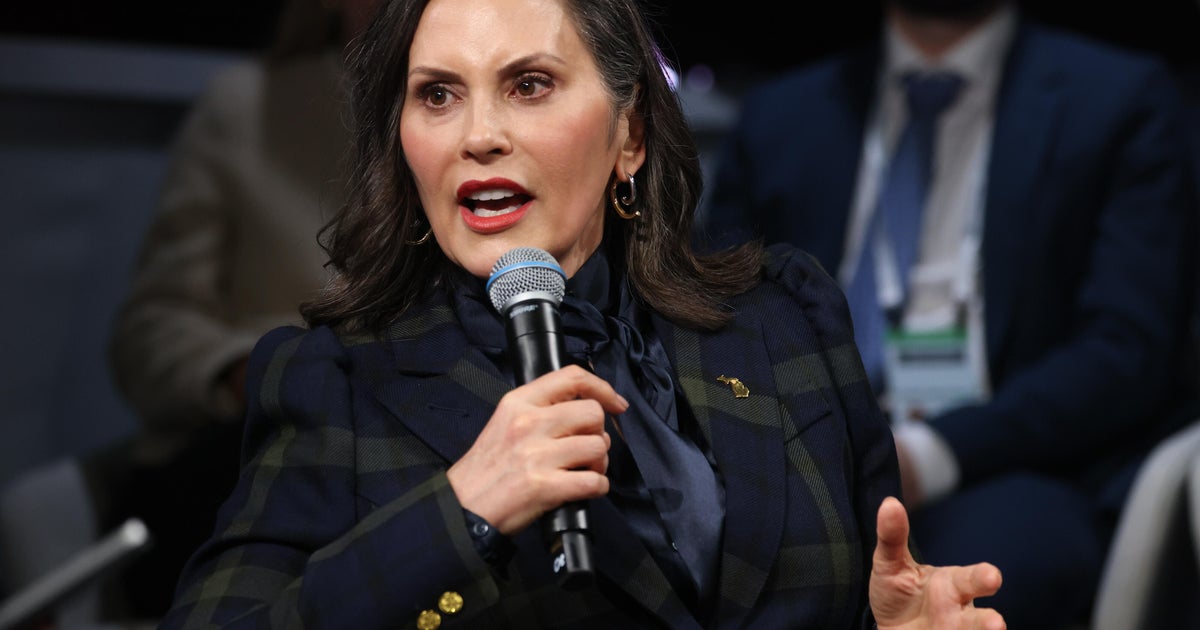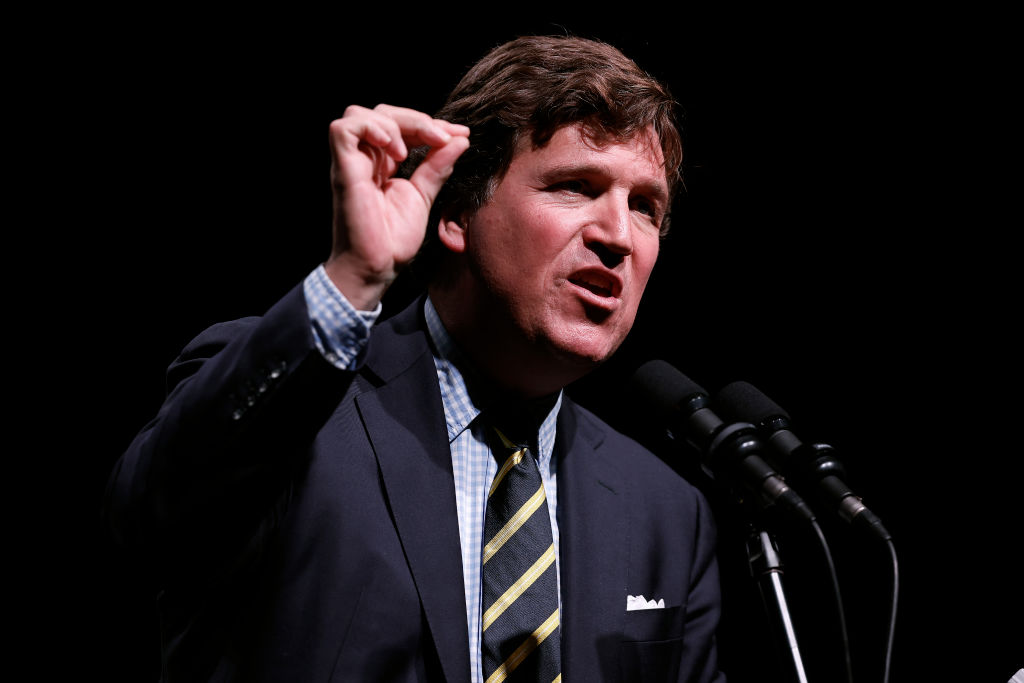Transcript: Treasury Secretary Steven Mnuchin on "Face the Nation," Nov. 12, 2017
Tax reform was front and center this week on Capitol Hill, and pressure is mounting on Senate and House Republicans to score a legislative win for the party before next year's midterm elections.
On Sunday, "Face the Nation" sat down with Treasury Secretary Steven Mnuchin to discuss tax reform -- and more.
What follows is a transcript of the interview, which aired, Sunday, Nov. 12, 2017, on "Face the Nation."
JOHN DICKERSON: Republicans are racing to get tax reform passed on Capitol Hill. The president has said he wants a bill by Christmas. We turn now to one of the president's men working on that bill, Treasury Secretary Steven Mnuchin. Welcome, Mr. Secretary.
Before we get on to taxes, I want to ask you a question about Russia. You were in charge of carrying out the sanctions against Russia through the Treasury Department for meddling in last year's election. You sat in the security meetings. How it is possible, then, for the president to say that he believes that President Putin is sincere, when he says he didn't meddle in the last election?
STEVEN MNUCHIN: Well, first, let me just say that we are absolutely carrying out the sanctions. And that's something we're very focused on. The president has said that he believes in the intelligence. He's also said that he believes that Putin believes what he said.
But it's really time to move on off this issue. I think the president was focused on very important issues, such as North Korea and Syria, where we have to get along with and have common goals with Russia. And that's what's really important right now.
JOHN DICKERSON: But so just so people are clear, there's no ambiguity about this issue from your standpoint, in terms of Russia interfering with the election.
STEVEN MNUCHIN: What I'd say is I've seen information. I'm not going to comment on any of the confidential information I've seen. We are carrying out the sanctions. But let me be clear, nobody thinks this has had any impact on the election. So whatever occurred, there was no impact. So I think the American public is ready to move on to more important issues: tax reform and foreign policy and national security.
JOHN DICKERSON: Yeah I just think, on the national security front, people think this is an enemy. We should behave with them as such. But let's move on to the question of taxes. The Senate bill came out this week. Corporate tax breaks, that are very important to the president, don't phase in until 2019. Is that a problem?
STEVEN MNUCHIN: Well, let me tell you, the good news is both the House and Senate bill have the absolute same objectives and I think we're looking forward to, this week, the House passing the bill. Obviously, we would prefer if they kicked in sooner rather than later, but we're going to work with the Senate on that issue.
And one of the things that's very important is, even if they don't kick in, expensing will kick in right away. So companies will be able to take advantage of expensing at a higher tax rate. But I'm confident that this is one of the issues that, when we get to conference, we'll resolve between the House and the Senate.
JOHN DICKERSON: Is there an economic impact, if those corporate tax breaks don't kick in faster? You suggested it might hurt the market, hurt growth. What's the economic impact, if they don't kick in faster?
STEVEN MNUCHIN: Well, I commented, as it relates to the market, was actually, if we don't get tax reform done. But I'm highly confident we'll get it done. And I think you see than in the market. As it relates to the specific impact of one year, we're studying that carefully. Again, there's offsetting effects in both directions.
JOHN DICKERSON: You went out to California to make the pitch for tax cuts. You met with the Bahnsen Group, wealth management group. Here's what the CEO had to say in the National Review, "The deep challenge in getting tax reform done is that the government spends too much money. And no one, including the president, wants to tackle that." What's your response?
STEVEN MNUCHIN: Well, that's not an issue we're focused on right now. But we are focused on regulation. We are focused on kind of the two for one, getting rid of two regulations for any one. And the president has an executive order that has us looking at efficiencies across the administration.
JOHN DICKERSON: Here's the worry about not being focused on the debt and deficit is that, A, Republicans have been for a long time. So it's curious why they wouldn't be as focused on it in this context. And B, is that if the debt and deficit aren't addressed, the growth that you hope will happen won't happen, because of the drag on the economy.
STEVEN MNUCHIN: Well, the president is concerned about the debt. We've gone from $10 trillion to $20 trillion under the last administration, that's concerning. But our number-one focus right now is on growth. If we can create 3% or higher sustained economic growth, that's over $2 1/2 trillion of additional revenue to the government, $10 trillion of additional revenue to the economy. And that's what's critical to the American public.
JOHN DICKERSON: So there's obviously a lot of dispute about that growth number, particularly with this drag from the debt, that that growth can be achieved. And one of your predecessors, obviously, a democrat, Larry Summers, had some tough words about that- those growth assumptions. He said, "I'm not aware of so irresponsible an estimate coming from a treasury secretary in the last 50 years." What's your response?
STEVEN MNUCHIN: Larry has been quite outspoken as a previous secretary of treasury. I'd say we have full transparency on the numbers. We have economists that come out, most of them agree with us. The break-even is 35 basis points for us to have break-even.
And I would just comment, in the Obama administration, they were projecting 4% and higher GDP. So I find it somewhat amusing, now that we're projecting 3%, that all these people who projected higher are coming out and criticizing us.
JOHN DICKERSON: Let me ask you about wages. One of the theories is that corporate tax rates come down, wages go up. I talked to a Trump voter in New Hampshire who said that she believed the president would put pressure on corporations to make sure they turned the benefits of tax reduction into wages. Was that something he might do?
STEVEN MNUCHIN: The president and I literally met with thousands of businesspeople on the campaign. And we heard the same thing: "Give us a competitive system in terms of taxes and regulation, and American business will compete better than anyone in the world and bring back trillions of dollars and create more jobs here.
JOHN DICKERSON: But do you think he will weigh in the way he did, say, with Carrier and other companies?
STEVEN MNUCHIN: Oh of course he will.
JOHN DICKERSON: Let me ask you about lobbyists. The president said he wanted to drain the swamp in Washington. What instruction has he given you, in putting this package together, to keep lobbyists' influence out of the process?
STEVEN MNUCHIN: Again, I'm not concerned about lobbyists. We've reached out to many, many trade groups to get lots of input, okay? Lots of people, lots of CEOs, have had input into this. But this is all about growth. And this is about a economic program that I've had the opportunity to work with the president since the campaign. And we're focused, we're so excited to get this done and to the president's desk in December.
JOHN DICKERSON: So no special instructions, though, about lobbyists, getting them out of this process.
STEVEN MNUCHIN: I haven't had any lobbyists really involved with us. We've had trade groups that we've listened to input. But I'm not concerned about lobbyists at all.
JOHN DICKERSON: All right, Mr. Secretary. Thanks so much for being with us. And we'll be back in a moment.



